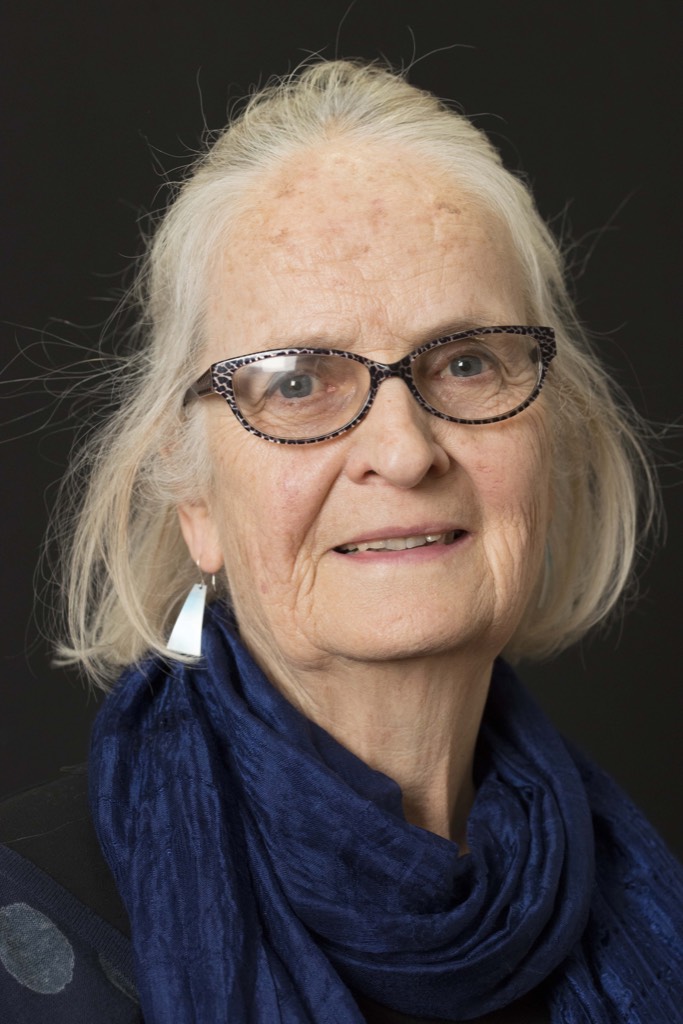Maggie Hewitt
You had to make sort of, snap decisions really about things. Because, sometimes there was no one else to ask about it. And I suppose for me was, the example with, when we received what we thought might be a bomb. [laughs] We were a box number for groups that didn’t want to give their private address, and one of them was Box 13, ironically, was for An Phoblacht, which is, was the, is still, the newspaper of Sinn Féin, you know, for the IRA, or Sinn Féin. So, An Phoblacht would arrive, I don’t know, every week or something, newspapers. And, they were very obviously newspapers. And a few days before Christmas a box arrived, and it was very obviously not newspapers, it was very square and much heavier and very solid. And it arrived, and, we thought, there’s something odd here, this is not newspapers. So, myself and Wendy Pettifer carried it out of the building where we had a yard at the back, and then there was like, a sort of, shed, or a sort of coal hole, you know, at the back. And we put it in there. Okay.
Remove it from the building.
Just to remove it from the building. So, when I went home I thought, oh, you know, we can’t open tomorrow without sorting this out. So anyway, so, I went in, and, it was like, the last day before Christmas, so people arrived with hats and, you know, wine and things like that. And I said, ‘Hang on a minute.’ And I told them. And I said, we might- you know, ‘We have to phone the police.’ And the police arrived, because they’re just literally up the road. So the police arrived very quickly. And they said, ‘Right, we’re getting the bomb squad in. So you have to get out of the building.’ And the bomb squad came along, and they cordoned off from the Rio one side up to sort of, Shacklewell Lane. So quite a distance.
A whole stretch of Kingsland Road.
A whole stretch of Kingsland Road. And they said, ‘You cannot stay in the building, if this goes up, and, we’re taking it seriously.’ And, so we were, with our bottles of wine and our glasses, we were standing outside the Rio, while the bombs squad went in. And they, they opened this box. And it turned out to be a box of Christy Moore tapes. Christy Moore is an Irish singer, and when he’d come to the Hackney Empire he’d say, ‘Oh I’m from Derry, London,’ you know, [laughs] you know, Derry, London. And things like that. And I often thought, if I ever met him, I would tell him this story.
Maggie Hewitt worked as a publishing worker at Centerprise from 1979 to 1986. Maggie remembers the writers, events and controversies that punctuated her time in the collective: from the friendship she developed with the poet Lotte Moos to how they dealt with a Christmas-time ‘bomb scare’.
The interview begins with a recollection of leaving her job as head of English in a London comprehensive school to come to Centerprise: ‘the salary was half what I had been earning, my colleagues at school thought I was having a nervous breakdown’. She explains the new challenges posed by carrying out an array of different tasks as a collective member; for instance at first she couldn’t reach to pull down the shutters when she was closing up. Collective working meant she could contribute to other areas not just publishing; for instance, she introduced Asian language books into the bookshop.
As a publishing worker Maggie helped produce a range of publications, including Breaking the Silence, a book written by Asian women in five different languages, one of the first multiple language books of its kind. She instigated a history project to record the history of the young ‘singing strikers’ from the Rego and Poliakoff garment factories in 1928, with workshops convened to sing the songs with folk singer Sandra Kerr. She describes taking part in the Hackney Writers’ Workshop as a writer and says that she found writing ‘exposing’, but rewarding.
Maggie talks about her work with Pauline Wiltshire, author of the successful autobiography Living and Winning. Maggie worked with Pauline for around five years, transcribing and editing her book. It won a prize for best popular history/autobiography at the Socialist Bookfair in 1985 and was one of Centerprise’s bestselling books. Living and Winning proved controversial, raising the issue of white publishing workers working with black writers, which would ‘split the collective’. After leaving Centerprise Maggie continued to work in education and oral history in east London.
Interviewed by Bea Moyes.




